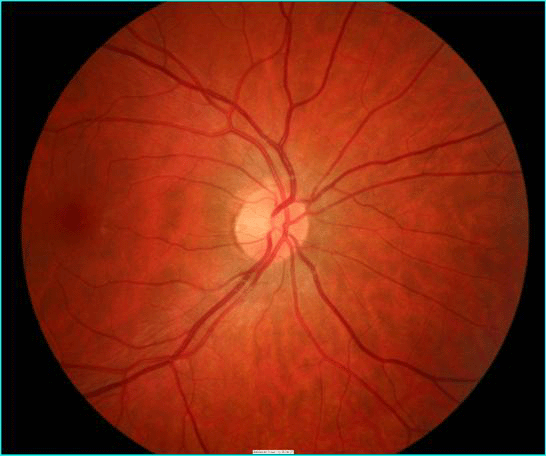Ages phase 1.
AGES Reykjavik Study: The Reykjavik Study of Healthy Aging for the New Millennium
About the study
Vilmundur Gudnason, Principal Investigator, Icelandic Heart Association, Tamara Harris, M.D., M.S., Principle Investigator, National Institute on Aging; Lenore Launer, Ph.D., M.P.H., Principle Investigator, National Institute on Aging. The sequencing of the human genome and identification of candidate genes will allow substantial innovation in the epidemiologic study of aging. Understanding genetic and environmental contributions could create novel opportunities to prevent disease and limit disability. To address this unique opportunity, the Age, Gene/Environment Susceptibility (AGES Reykjavik) Study was initiated to examine genetic susceptibility and gene/environment interaction as these contribute to phenotypes common in old age, a collaborative study between the National Institute on Aging, NIH and the Icelandic Heart Association.AGES scientific goals:
- To identify genetic and other new risk factors for selected diseases and conditions including: atherosclerosis, cognitive impairment, dementia and subtypes (i.e. Alzheimer=s disease), stroke, sarcopenia, obesity, osteoporosis, diabetes, and osteoarthritis.
- To characterize phenotypes for these diseases and conditions, and study them in relation to genetic susceptibility, gene function and genetic/environmental contributions to disease.
- To identify contributory molecular markers associated with these conditions including markers of cellular maintenance and repair, markers of oxidative stress, and immunologic and endocrine indicators.
The AGES will phenotype the surviving 12,000 members of the Reykjavik Study cohort (now 67 years and older) for quantitative traits related to diseases and conditions of old age, and collect genetic and other biologic specimens The IHA-established Reykjavik Study, a longitudinal study from 1967 to 1994 of over 20,000 participants collected mid-life data on cardiovascular traits such as blood pressure and cholesterol.
Improvement in measurement of quantitative traits as phenotypes will be key to improving on the current generation of genetic association studies. Using mid-life data to better characterize an individual’s traits is one approach. More important will be efforts to better define phenotypes with imaging techniques and molecular markers. New technology for the measurement of quantitative traits are used for instance, calcium scoring of the coronary arteries by computerized tomography (CT) and hippocampal volume by magnetic resonance imaging (MRI) in addition to standard phenotypic measurements. Biochemical or even array-based measures will be used when appropriate. Incorporation of these methods in conjunction with data already available in the Reykjavik Study should result in improved phenotypes for association studies.
Recruitment to the study was finalised in January 2006. There were 5764 participants to the AGES-Reykjavik Study, almost 300 by home visits. The response rate was 72%. It took a lot of time and effort to participate in this comprehensive study and we are very grateful to all the participants who have shown the Icelandic Heart Association so much good will by taking part in our studies.
There were 5245 AGES participants alive in April 2007 when the pilot study for the AGES follow-up (AGESII) began. The recruitment was 3411 individuals including the pilot study. The main study started October 1, 2007 and the last participant was recruited to AGESII on September 1, 2011. The hearing and eye components were added on to AGESII November 05, 2007. The recruitment rate was 72 %.
Access to protocols and the data dictionary is available by request.
The AGES-Reykjavik study is a founding member of the Cohorts for Heart and Aging Research in Genomic Epidemiology (CHARGE) Consortium which was formed in Feb 2008 to facilitate GWAS meta-analyses of a wide range of phenotypes among large population- based prospective cohort studies
Sub-studies to AGES/AGESII where new recruitment was involved include:
Imaging Cardiac Evaluation to Locate Areas of Necrosis and Detect MI (ICELANDMI) in collaboration with Andrew Arai, NHLBI (900 participants)
Vascular factors and change in brain structure and function in collaboration with Gabrielle Leblanc, NINDS (400 participants)
Kidney Function, Aortic Stiffness and Aging in collaboration with Andrew Levey and Lesley Inker, Tufts University Boston (800 participants)
Aorta, brain and kidney structure and function in the AGES- Reykjavik study in collaboration with Gary Mitchell Cardiovacsular Engineering, Boston (600 participants)
Correlates and Consequences of Higher Bone Marrow Adiposity in collaboration with Ann Schwartz, UCLA (300 participants)
Accelerometry in an aging cohort in collaboration with Kong Chen, NIDDK (550 participants)
AGES-Reykjavik Executive Committee:
PI
Vilmundur Gudnason, MD PhD. Icelandic Heart Association
Co-PIs
Tamara Harris, MD, MSc, NIA, NIH – Lenore Launer, PhD, NIA, NIH – Gunnar Sigurdsson, MD, PhD, Univ. Iceland – Palmi V. Jonsson, MD, Univ. Iceland – Gudmundur Thorgeirsson, MD, PhD, Univ. Iceland – Olafur Kjartansson, MD, Univ. Iceland – Mary Frances Cotch, PhD, NEI, NIH – Howard Hoffman, PhD, NIDCD, NIH
AGESII-Reykjavik Executive Committee:
PI
Vilmundur Gudnason, MD PhD. Icelandic Heart Association
Co-PIs
Tamara Harris, MD, MSc, NIA, NIH and Lenore Launer, PhD, NIA, NIH

Opening hours
- Mon - Fri: 08:00-16:00
- Saturday and Sunday: Cloesd


